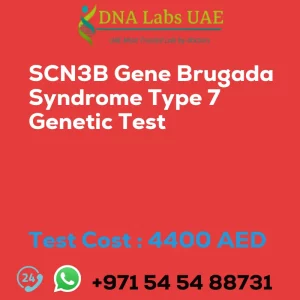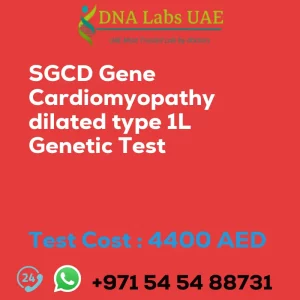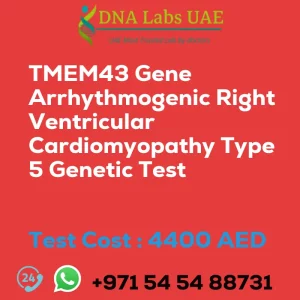KRAS Gene Cardiofaciocutaneous Syndrome Genetic Test
At DNA Labs UAE, we offer the KRAS Gene Cardiofaciocutaneous Syndrome Genetic Test to provide valuable insights into this rare genetic disorder.
Test Components and Price
- Test Name: KRAS Gene Cardiofaciocutaneous Syndrome Genetic Test
- Price: 4400.0 AED
- Sample Condition: Blood or Extracted DNA or One drop Blood on FTA Card
- Report Delivery: 3 to 4 Weeks
- Method: NGS Technology
- Test Type: Cardiovascular Pneumology Disorders
- Doctor: Cardiologist
- Test Department: Genetics
Pre Test Information
Before undergoing the KRAS Gene Cardiofaciocutaneous Syndrome Genetic Test, it is important to provide the clinical history of the patient. Additionally, a genetic counseling session will be conducted to draw a pedigree chart of family members affected by the KRAS Gene Cardiofaciocutaneous Syndrome NGS Genetic DNA Test.
Test Details
The KRAS Gene Cardiofaciocutaneous Syndrome NGS Genetic Test is a type of genetic test that analyzes the KRAS gene for mutations associated with Cardiofaciocutaneous Syndrome (CFC syndrome). CFC syndrome is a rare genetic disorder characterized by abnormalities in the heart, face, and skin, along with developmental delays and intellectual disabilities.
NGS stands for Next-Generation Sequencing, which is a high-throughput DNA sequencing technology that allows for the analysis of multiple genes simultaneously. This type of genetic test can identify specific mutations or variants in the KRAS gene that may be responsible for causing or contributing to CFC syndrome.
The test involves obtaining a DNA sample, typically through a blood or saliva sample, and then sequencing the KRAS gene using NGS technology. The results of the test can help confirm a diagnosis of CFC syndrome and may also provide information about the specific mutation or variant present in the KRAS gene.
Genetic testing for CFC syndrome can be beneficial for individuals and families affected by the condition. It can provide a definitive diagnosis, guide medical management and treatment options, and inform family planning decisions. The test is typically performed by genetic counselors or medical geneticists who specialize in genetic testing and counseling.
| Test Name | KRAS Gene Cardiofaciocutaneous syndrome Genetic Test |
|---|---|
| Components | |
| Price | 4400.0 AED |
| Sample Condition | Blood or Extracted DNA or One drop Blood on FTA Card |
| Report Delivery | 3 to 4 Weeks |
| Method | NGS Technology |
| Test type | Cardiovascular Pneumology Disorders |
| Doctor | Cardiologist |
| Test Department: | Genetics |
| Pre Test Information | Clinical History of Patient who is going for KRAS Gene Cardiofaciocutaneous syndrome NGS Genetic DNA Test. A Genetic Counselling session to draw a pedigree chart of family members affected with KRAS Gene Cardiofaciocutaneous syndrome NGS Genetic DNA Test gene KRAS |
| Test Details |
KRAS gene Cardiofaciocutaneous syndrome NGS Genetic Test is a type of genetic test that analyzes the KRAS gene for mutations associated with Cardiofaciocutaneous syndrome (CFC syndrome). CFC syndrome is a rare genetic disorder characterized by abnormalities in the heart, face, and skin, along with developmental delays and intellectual disabilities. NGS stands for Next-Generation Sequencing, which is a high-throughput DNA sequencing technology that allows for the analysis of multiple genes simultaneously. This type of genetic test can identify specific mutations or variants in the KRAS gene that may be responsible for causing or contributing to CFC syndrome. The test involves obtaining a DNA sample, typically through a blood or saliva sample, and then sequencing the KRAS gene using NGS technology. The results of the test can help confirm a diagnosis of CFC syndrome and may also provide information about the specific mutation or variant present in the KRAS gene. Genetic testing for CFC syndrome can be beneficial for individuals and families affected by the condition, as it can provide a definitive diagnosis, guide medical management and treatment options, and inform family planning decisions. It is typically performed by genetic counselors or medical geneticists who specialize in genetic testing and counseling. |








